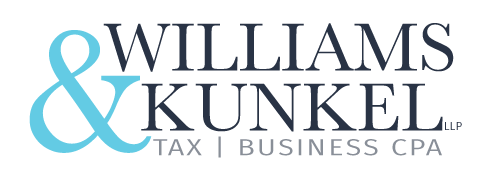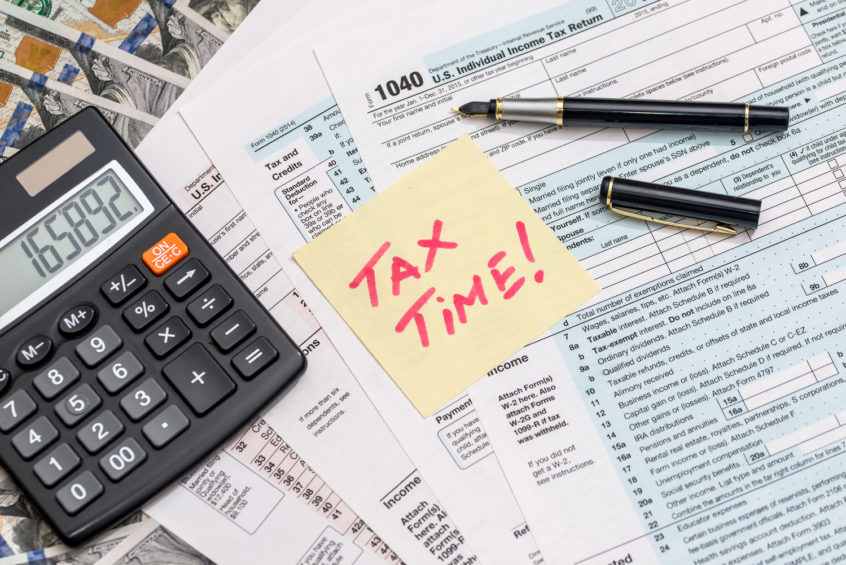Why Work with a Strategic Tax Coach? Managing taxes can be a complex and overwhelming task, especially for small business owners, freelancers, and entrepreneurs. A strategic tax coach can make a significant difference in how you handle your tax planning and financial strategy. In this post, we’ll explore the benefits of working with a strategic tax coach and how it … Read More
DFW Tax Savings: Small Business Tax Tips to Make Filing Less Stressful
The economic climate is still reeling from the COVID-19 pandemic. Some 12% of small business owners say financial stability is the most important challenge for them, beaten only by loss profits and attracting new customers. No surprise then that taxes—a bill that arrives at the end of each financial year—is the second-most important problem for small businesses in the US. Managing your taxes for … Read More
Dallas Tax CPA: Saving On 2020 Taxes
Last year brought big changes for millions of Americans. Many lost their jobs or saw their paychecks reduced; others worked remotely from home. Some were forced to drain their retirement accounts to pay the bills; others fortified their savings with stimulus checks. (Dallas Tax CPA: Saving On 2020 Taxes) All of these changes could affect your 2020 taxes — for better or … Read More
Dallas Tax Advice: Cut Business Costs, Part 2
As part of an ongoing series on how you can cut business costs, we’re sharing a few more tips. Finding the right balance between what to spend and what to save is what an expert CPA can help you with. (Dallas Tax Advice: Cut Business Costs, Part 2) 1. Align Your Use Of Resources To Your Objective Ask yourself, “What … Read More
Flower Mound Texas Tax Reduction: Cutting Your Bill
An unexpected tax bill can ruin your day. To help avoid that unwelcome surprise, here are some easy moves many people can make to cut their tax bills. In many cases, you must itemize rather than take the standard deduction in order to use these strategies. The extra effort may be worth it. (Flower Mound Texas Tax Reduction: Cutting Your Bill) 1. Tweak your W-4 The W-4 … Read More
Flower Mound Best Accountants: Your Tax Savings
Early November is a good time to make a checklist and see if you’re doing all you can to reduce your taxes. (Flower Mound Best Accountants: Your Tax Savings) 1. Dump losing investments Tax-loss harvesting is a strategy in which you rack up losses in a taxable brokerage account by selling holdings that have declined in value. You can then … Read More
Texas CPA All Stars: More Important Than Ever To Save On Taxes
During these times of economic uncertainty, two things remain certain: taxes and a need to save money. (Texas CPA All Stars: More Important Than Ever To Save On Taxes) Unemployment is taxable just like ordinary income. This means that those who receive unemployment benefits will have to pay taxes on those benefits. For those who fall into the 12% tax … Read More
DFW Business Advisors: Tax Deductions For Successful Businesses
BUSINESS OWNERS looking to lower their tax burden can take advantage of several money-saving deductions. These include popular deductions for vehicle expenses and home offices. It also includes relatively new qualified business income deduction that will allow some small business owners to write off 20% of their income. (DFW Business Advisors: Tax Deductions For Successful Businesses) Here are five business tax deductions that you … Read More
Dallas Tax Consultants: Save With These Tax Tips
Even though it’s still early to file your taxes, the sooner you do, the better. (Dallas Tax Consultants: Save With These Tax Tips) The IRS issued more than 111.8 million refunds for the 2018 tax year. Taxpayers received an average payment of $2,869. This year could bring an even bigger windfall for those who play their cards right. Here are … Read More
Flower Mound Business Advisor: Tax Deductions for Self-Employed
In this day and age we want both flexibility and convenience. We also want to be our own boss. This is why we have seen a steady rise in the numbers of self-employed individuals in the United States. Especially among young millennials who want to be in charge of their own career path. (Flower Mound Business Advisor: Tax Deductions for … Read More










